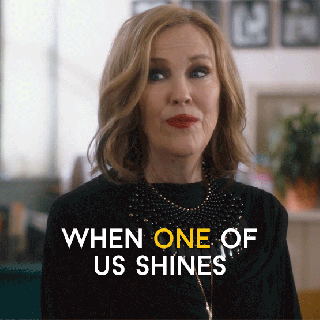Because critique partner relationships are so dear to me, I’ll be blogging on this topic for a while. If you happen to be of the anti-feedback persuasion, feel free to roll on elsewhere. But if you’re an expert juggler of critique partners and have found different methods that work great for your process, please share them in the comments!

When I first sought feedback on my writing, I hit a lot of personal and social roadblocks, and I’d love to help others avoid the same. I had no idea what I needed in critique or how to give it, how to process feedback or act on it, let alone how to find CPs and work with them. I’m here for all you precious newcomers to gathering feedback, because I’ve been there–confused and desperate to learn.
I’ll go over the basics first–the types of critique relationships and how they work.
Setting Boundaries
Before getting into the nitty-gritty of critiquing, you have to choose what level of interaction you’re comfortable having with potential critique partners: in-person, online, or a variation between.
General Tip: Regardless of the setting, respect others’ space and time, and don’t behave or permit others to behave in ways that cause harm or shame.
Since in-person critiquing pretty much has the same boundary concerns any other social environment between mutual acquaintances has, I won’t focus on that now. Instead, let’s look at types of common online critique relationships.
Single Swap
 In a single swap, two writers swap an agreed-upon length of work, which is usually a set number of pages or chapters. When arranging this swap, it’s good practice to state the expected time frame.
In a single swap, two writers swap an agreed-upon length of work, which is usually a set number of pages or chapters. When arranging this swap, it’s good practice to state the expected time frame.
This can be as awkward as a blind date. Be patient, considerate, and wary.
Tip: ALWAYS start with a single swap before making a larger or longer commitment.
Return your feedback, and be gracious. Check in if your single swap seems to be taking forever (longer than agreed), but respect your potential partner’s time. Being pushy, argumentative, or expectant can result in getting ghosted.
If it goes well, awesome! Decide together if you want to keep swapping and how. If not, relax; it’s normal. You may find writers you connect with on a hundred levels, but that doesn’t mean you’ll connect with each other’s work. It’s not necessary to connect with works still in progress, but it won’t hurt. You can stay writing friends without being CPs.
Prolonged Swap
 This kind of swap naturally follows the initial single swap if all went well. You may not be best friends yet, but you find a sync together that’s powerful. Whatever terms you decide on, it’s important to be honest if those terms become too demanding. Critiquing is valuable emotional labor–don’t discount your needs!
This kind of swap naturally follows the initial single swap if all went well. You may not be best friends yet, but you find a sync together that’s powerful. Whatever terms you decide on, it’s important to be honest if those terms become too demanding. Critiquing is valuable emotional labor–don’t discount your needs!
Pro Tip: COMMUNICATION is everything!! If you’re stuck, if you can’t meet a return deadline, or if you feel you aren’t getting what you need most from feedback, SPEAK UP!
Team Swap

I’ve had so many fantastic experiences with critique teams, and I can’t recommend them highly enough. Teams are usually a group of 3-5 writers who swap on a regular basis.
My favorite setup is The Ubergroup‘s draft team design: 4-6 teammates–matched by writing goals, genres, age categories, and/or critique styles–who swap a chapter per week in 6-week cycles (with one week off between). It’s rigorous, demanding, and oh-so-rewarding for building and maintaining craft discipline.
This format allows for relationship-building, story-investment, deep craft study, discussion, and all manner of benefits that come from being a team player involved with in each others’ lives. It takes time to work through a full novel, yes, but you have plenty of time to delve line by line, page by page, into each others’ stories. And when they reach the end, they’re fully-informed about your vision and story strengths to help you polish submission materials.
Pro Tip: Seek out writers who have craft experience you don’t, not just writers on the same leg of their writing journey. Learn from each other.
I’ve heard, but not confirmed, that many local writing associations have similar swap team arrangements, both in-person and online.
Open Swap

Open swaps encompass everything else. Maybe you critique for someone, and they betaread your work. Maybe you help with queries and submission materials, while your partner dives into plotting and worldbuilding your new project. I work with some CPs who never share their early drafts, so our partnerships focus on sharing craft books and podcasts, practicing techniques together, and creating character charts.
Do what works!
General Tip: Open swaps feel suspiciously like friendship. Cherish the emotional labor others give you, because it’s a gift.
Reaping Benefits
A quick list of what swapping (of any kind) can do for the writing journey:
- Build/strengthen relationships
- Grow your craft in new and unexpected directions
- Develop craft skills through practice and validation
- Get advice from experts in other fields
- Add authenticity by broadening your perspective
- Discover new writing opportunities
- Improve your plot, prose, dialog, setting, worldbuilding, grammar, vocabulary, narrative voice, characterization, pacing, and overall storytelling
- THICKEN YOUR SKIN
Writing is hard, but it shouldn’t be lonely. From idea creation to final product, input from critique partners is priceless. They are your characters’ first fans, your worlds’ first visitors, your secret weapons against stagnation, the ones who will commiserate with your rejections and celebrate your successes.

Next month I’ll explore some dos/don’ts of these critique relationships and red flags to watch out for with new (or even longtime) CPs. Please let me know if there’s anything you’d like me to add to this discussion? I’m always open to feedback!
 For more writing blogs, check out #AuthorToolboxbloghop or click on the toolbox.
For more writing blogs, check out #AuthorToolboxbloghop or click on the toolbox.
You’re a CP expert! I’ve never tried a team swap before. This sounds so rewarding. I’ve done versions of open swaps with my fave CPs. I’m in a weird spot right now, where people are asking to read my stuff, and I’m like, no, I’m shy. 🙂 Great post!
LikeLiked by 1 person
Lol, I don’t know that I’m an expert yet–five more years in the trenches might do it, though.
There’s a time for shyness, for protecting new work. Knowing you, I bet you still have trusted writing friends you bounce ideas with even if it’s not “the work” itself. Knowing when to set those boundaries for your own craft care is important, too!
LikeLike
P.S. You may want to add #AuthorToolboxBlogHop or some version of that to your title so that hop participants know which post to click into.
LikeLiked by 2 people
Got it! Thanks for the reminder!
LikeLike
I think critique partners, if you have them, are great. I don’t have them only because I don’t like people to see my story until I’ve finished writing it and have polished it to the best of my abilities, and then I may approach one or two of my trusty beta readers. And also because I have so little time to squeeze in critiquing for someone else. But the benefits you pointed out are awesome. 🙂
LikeLike
I hesitated approving this, because, for me, critique IS active craft work that I view as necessary, but to each their own. Giving is even more important than receiving, in my opinion.
LikeLike
Clever and informative post. I’ve never engaged in these types of one-on-one or team reviews. I need to look into it.
LikeLiked by 1 person
These are some very interesting ideas.
I definitely swap with other writers from time to time, but we rarely formalize the exchange.
One thing I like to do whenever I’m receiving a piece for feedback is to ask several questions beforehand, to get a better handle of where the author is in their writing journey, and what they’re looking for. One friend sent me a piece that was essentially intended as a personal letter that they were going to send to multiple people, rather than write a separate message to each friend, and it took me a while to realize that was what they intended.
I think it’s very easy to misjudge what someone’s writing goals are, and by extension what kinds of feedback they’re looking for.
LikeLiked by 1 person
Great insight, Jess. I think I have managed all of the above at this point. I have a couple writing partners and am lucky enough to have several local CP groups that do team swaps. The feedback you get from a group is amazing. It really helps to filter through a person’s preferences and find problems in your work. I will definitely check out Ubergroups too. I think it is important to get fresh eyes as well as your regulars to look at your work.
This would have been so amazing to read when I first discovered critiquing. (Don’t get me wrong. I still loved reading it, but now it was with nods of agreement throughout.)
LikeLiked by 1 person
Thanks! I know I needed some of this laid out for me when I was beginning, too. I hope you’ll bear with me as I delve deeper into the details over the next few months. Newcomers need all the helping hearts they can find (certainly not just mine!).
LikeLike
I’ve done almost all forms of critiques swaps. In the beginning, none of knew a thing and we learned from each other. Unfortunately, squabbling and an unreliable schedule caused me to leave.
I found a new group, but I had experience and they didn’t, so my time was spent (gently) teaching and not getting the feedback I needed. With a 1200 word limit every two weeks, I outpaced them.
Now, I’m more or less in a accountability partnership with one other person. We set goals, read each other’s works, and meet online twice a month. I still miss the deep down critiques I had at the beginning, but I’ll settle for beta readers (hint: always looking for new ones)
Thanks for the breakdown and the list of precautions to take.
LikeLiked by 1 person
You’ve brought up an excellent point; “outpacing” is the major downfall of the team arrangement. I’ll talk about this more soon, but what I like to do is to juggle a slow but deep team alongside my most trusted CPs who are too hungry to read and give feedback to worry about word limits. And, with a little encouragement, a strong draft team can also pick up the pace after a time of adjustment.
LikeLike
As Raimey said, this is expert advice. Thank you for sharing.
LikeLiked by 1 person
Love these tips! I’ve exchanged my work a couple times, but it’s inconsistent.
I can’t wait for next month to see how to make the most of these interactions!
LikeLiked by 1 person
I live in a small town and most of my critter pals are online, I have a small group of people I’ll read for anytime. It’s not always even or fair. But somehow when I need help, someone is always there to lend a hand. 🙂
Anna from elements of emaginette
LikeLike
Great post on building reading relationships. I’m slowly growing my writing network, though I’ll keep in mind your tips here. Thanks so much for sharing!
LikeLike